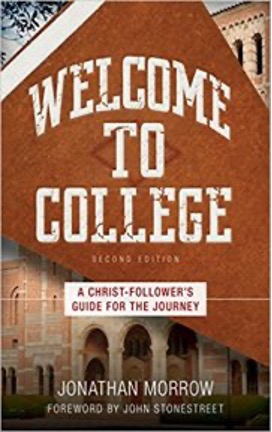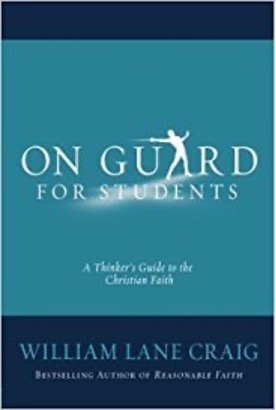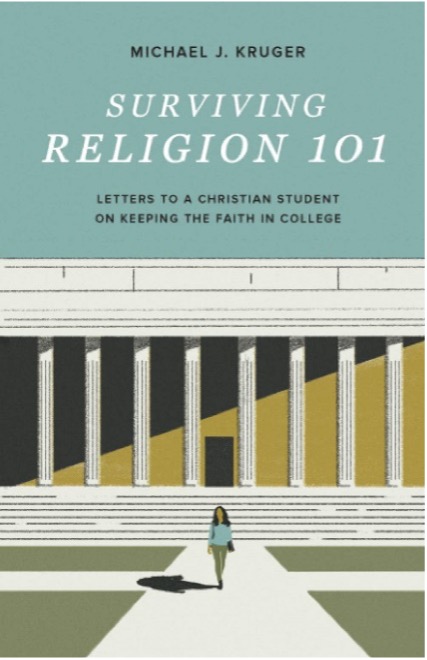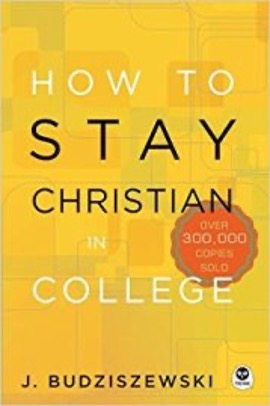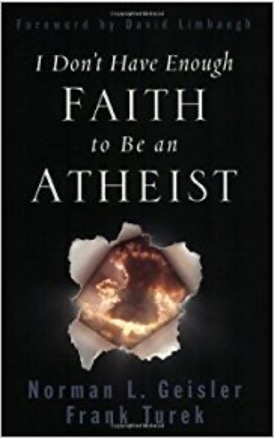When my book When Culture Hates You came out earlier this year, I got a lot of comments from both Christians and nonbelievers either laughing off the idea that the culture hates Christians or suggesting to me that writing a book of this nature was unnecessarily “divisive.” There are even some reviews from people who loved the book but still mention that you “just have to get past the title.”

Never mind the fact that Jesus Himself told his followers the world would hate them (John 15:18-19: “If the world hates you, keep in mind that it hated me first. If you belonged to the world, it would love you as its own. As it is, you do not belong to the world, but I have chosen you out of the world. That is why the world hates you”).
Other Christians commented that because Trump had just been elected (the book came out in February), we were starting to see that the culture was turning around and we’re actually NOT so hated.
Again, never mind the fact that Jesus Himself told his followers the world would hate them…and that when you understand the nature of the hate He spoke of and WHY it would exist, you know it’s not a function of the specific political environment at any given point in history.
Friends, I’m going to be honest. When Culture Hates You explains so much of what we’ve seen play out this week (in both the tragedy and responses to it). It provides so many answers I think Christians need and are seeking right now, but I haven’t wanted to say that because I didn’t want people to think I was using a tragedy to self-centeredly promote a book. I decided yesterday, however, that to not point people to content that is, I believe, so uniquely timely for what’s happening out of fear of people’s mistaken perceptions regarding my motivation is ironically what IS self-centered.
So, at the risk of anyone thinking that, I reached out to my publisher and got permission to share chapter 1 here (I also shared the audiobook version on my podcast this morning if you’d rather listen). This chapter alone explains:
- Why Christians like Charlie Kirk are hated by the culture (keep in mind the culture doesn’t hate ALL Christians)
- Why Christians are hated for some beliefs and actions but not others (you won’t be hated for serving in a soup kitchen!)
- What, exactly, Jesus said about the world hating his followers
- Why Christianity is necessarily a public faith
As I said in my podcast episode, if you want to read/listen to the rest of the book at some point, great…but if you have $13 dollars to spend today, donate it to the Kirk family or TP USA rather than buy the book. I put all of their suggested donation links in the show notes here.
In the meantime, I hope the following chapter helps bring clarity to much of what we’ve seen play out in front of our eyes this week. If you’d like to read my social media comments on this horrific murder, I’ve been posting all week on Facebook and X. And finally, please take the time to watch my friend Frank Turek’s video in honor of Charlie. Frank was a close friend of Charlie’s and was standing next to him when Charlie was killed. He was one of five people in the car with Charlie on the way to the hospital. His video is a touching and beautiful tribute.
CHAPTER 1: JESUS SAID IT WOULD HAPPEN
On March 26, 1997, sheriff’s deputies received an anonymous call to conduct a welfare check at a mansion in Rancho Santa Fe, California. When they responded, they found a shocking scene: Thirty-nine people were dead in what turned out to be the largest mass suicide in United States history.
But it wasn’t just the scale of the event that made headlines. The deceased were also mysteriously dressed in identical black tracksuits and brand new Nike shoes. Each person had the same cropped haircut, and a large purple cloth covered each of the bodies.
News of the bizarre scene spread quickly, and the media flooded in. It was eventually discovered that the group had ingested a fatal mix of applesauce, sedatives, and vodka in order to facilitate a collective suicide. Why? They thought they needed to shed their earthly bodies in order to board an alien spacecraft hidden behind an approaching comet—a spacecraft that would pass them through “Heaven’s Gate” and into a higher existence.
People were enthralled with the Heaven’s Gate cult. Despite the morbid nature of what happened, the group became the subject of endless jokes. Even Saturday Night Live made a parody about them. Culture clearly thought the people in this cult were delusional and outlandishly wrong.
But culture didn’t hate them.
When your doorbell rings and you discover two well-dressed people from a local church standing on your doorstep, there’s a good possibility that they’re Jehovah’s Witnesses. Well known to the world for their door-to-door preaching, Jehovah’s Witnesses reportedly send more than 8.5 million people into neighborhoods each year.
The internet abounds with humorous memes of people desperately searching for a way to escape from these evangelists on their doorstep. Apparently, if you’ve ever looked through your peephole and quietly tiptoed back into your house hoping your unsolicited church visitors won’t ring again, you’re not alone. Culture widely considers Jehovah’s Witnesses to be annoyingly persistent in their door-to-door activities.
But culture doesn’t hate them.
If you drive through parts of Lancaster County, Pennsylvania, you’ll probably have to slow down to accommodate horses and buggies driven by men dressed in black broad-brimmed or straw hats. As you pass through that rural countryside, it may look like a scene from another century. But it’s just everyday life for the local Amish community.
Lancaster County is home to the largest and most well-known settlement of Amish in America, though there are more than 350,000 Amish living in 32 states. Known for shunning modern conveniences like cars, the Amish form close-knit communities dedicated to simple living in pursuit of an undistracted devotion to God. Millions of people flock to Amish country each year to get a glimpse of their unique way of life. At the same time, the Amish are often criticized for being backward and isolated. Culture certainly thinks they’re a curiosity.
But culture doesn’t hate them.
There’s a reason culture doesn’t hate these three groups, even when it’s had an otherwise negative assessment of them: These groups haven’t attempted to influence the public square with their contrarian views.
The public square is anywhere views are shared for the purpose of shaping public opinion on how society should function. If contrarian groups keep to themselves such that culture can forge ahead in the absence of any perceived imposition of beliefs from those groups, they’re in the clear. Go ahead and don matching tracksuits with your friends in anticipation of an alien ship, spend your free time knocking on doors, or live like it’s 1750. Culture might think you’re pitiable, annoying, or weird, but it won’t hate you.
That level of bitter resentment is reserved for groups who believe they shouldn’t keep their contrarian views to themselves. Groups whose very purpose includes a charge to influence the culture around them based on beliefs starkly opposed to those cherished by that culture.
Groups…like Christians.
Who Is Culture?
When I say that culture does or does not hate certain groups, you probably have a general idea of what I mean by culture. But because that word can imply some very different things in different contexts, it’s important to clarify what I mean by it for the purposes of this book.
In the broadest sense, culture refers to the way of life for a society—the manners, dress, language, religion, arts, and customs generally shared by a group of people at a given time. That’s the kind of definition you’d find in a dictionary. But in everyday conversation, people typically use the word culture to mean something much more nuanced. Culture, in this colloquial sense, is personified. It refers to the people and institutions who hold the values considered to be in vogue for a given society.
For example, if someone says to you, “Today’s culture thinks that…,” you intuitively know how the sentence might end given what you observe around you. Any of the following statements would readily fit the presumed context: love means affirmation; it’s better to be spiritual than religious; happiness is the goal of life; you shouldn’t be judgmental; or any number of other prevalent ideas.
This zeitgeist, or “spirit of the times,” can be observed at both individual and institutional levels. Examples of key cultural institutions would include the media, entertainment, government, and academia. Individuals influence those institutions, and those institutions, in turn, influence more individuals. That cycle is ongoing and mutually reinforcing, leading over time to certain values becoming culturally acceptable or celebrated and others becoming anathema. Culture, then, is a snapshot of the current state of society’s values.
That said, it’s important to also emphasize some qualifications about what isn’t implied by my use of the term culture in this book.
First, saying culture thinks or does something is not making a statement about the thoughts or actions of all cultures at all times. For example, the Amish were persecuted by their culture in times past, but that cultural hatred no longer persists. The term culture necessarily implies a context of time and place.
Second, saying culture thinks or does something is not to suggest that every single person in a given society thinks or does the same. We can broadly say culture doesn’t hate the Amish, for example, while recognizing that there are surely some people who do (particularly if they’ve had a bad personal experience with the Amish community).
Third, saying culture thinks or does something is not making a claim about the percent of people in a given society who think or do the same; it’s impossible to broadly quantify the spirit of the times when that encompasses constantly shifting and diverse factors. But even if you could quantify it, sheer numbers wouldn’t necessarily tell the full story. When a statistical minority is more aggressive in influencing the public square with their values than a statistical majority that holds opposing views, it’s the minority’s values that will often come to define the culture.
In summary, for the purposes of this book, culture refers to the people and institutions who hold the values widely considered to be accepted and celebrated in the United States today.
Beyond the Soup Kitchen
The significance of culture to Christians cannot be overstated, because culture functions as a gatekeeper of the ideas that fashionable society deems admissible to the public square at any given time. And if you’re a group whose values have become anathema, the gatekeepers won’t merely roll a condescending eye at you and then let you in. They’ll funnel their hatred of your contrarian values into an active campaign to keep your influence out.
It’s probably not news to you that this is increasingly the relationship between culture and Christians today.
It’s worth noting, however, that culture doesn’t necessarily hate everything Christians might advocate for in the public square. For example, people with all kinds of different views about the world would agree that it’s a good thing to volunteer at or donate to local soup kitchens. If you’re part of a Christian group passionate about that form of service, you might decide to publicly advocate for the cause in some way. In doing so, it’s likely that no one will hate you, even if they disagree on the best way to approach the issue of food insecurity. Serving food to those in need is an action still widely considered to be a moral good.
But now let’s say you’re a group who believes humans in the womb have the same value and God-given right to life as humans who have already been born, and you decide to publicly advocate for a local pro-life pregnancy center.
I don’t have to tell you we’re out of soup kitchen territory now.
In today’s culture, the pro-life position is seen as a repulsive injustice to women. Consequently, culture doesn’t think that those who hold such a position are merely mistaken—a belief akin to thinking an alien ship is coming—it thinks they’re oppressors. If you speak or act publicly against abortion, you’ll be morally condemned and detested for being harmful, oppressive, cruel, toxic, violent, or misogynistic (more on that in chapter 8).
Loving your neighbor by publicly advocating for a soup kitchen and loving your neighbor by publicly advocating for the protection of life in the womb are both outworkings of a biblical worldview. But, as we just saw, there’s a major difference in how those two actions are perceived by culture. The former will likely draw ambivalence or approval, the latter serious condemnation. As Christians, therefore, we aren’t resented for everything we believe and do, but because we’re reviled for opposing some of the values most cherished by culture, we’re increasingly hated as a group.
The gatekeepers would love nothing more than for us to just keep serving soup while being silent about the issues on which we’re at odds with culture—and that’s a tempting proposition for many Christians. After all, if we did that, culture would like us (or at least like us more). Who wants to be hated?
But being hated is exactly what Jesus told us to expect if we’re going to follow His commands. Silence in exchange for cultural respect is a deal with the devil.
Jesus Said It Would Happen
Knowing what the Bible says about culture hating the followers of Jesus is the key to understanding the moment we’re in, so let’s go to Scripture.
Jesus called His 12 disciples together one day to prepare them to go out on a mission. He gave them the authority to cast out unclean spirits and to heal every disease and affliction (Matthew 10:1). He then instructed them at length on what to expect and do on their journey. It certainly wasn’t a talk designed to encourage the disciples with any idea that the mission field would warmly embrace them. Jesus warned that they’d be handed over to local councils and be flogged in the synagogues (Matthew 10:17), that family members would betray each other and have one another put to death (Matthew 10:21), and that He didn’t come to bring peace, but a sword (Matthew 10:34). It’s within that context that Jesus said the following: “You will be hated by all for my name’s sake. But the one who endures to the end will be saved” (Matthew 10:22). Later, in Matthew 24:9, Jesus repeated to His disciples, “You will be hated by all nations for my name’s sake.”
These verses should raise the question of why Jesus’s disciples would be hated. In the immediate context of these passages, Jesus doesn’t explicitly say why. But we get a more detailed picture of what He had in mind in His words from John 15:18-21:
If the world hates you, know that it has hated me before it hated you. If you were of the world, the world would love you as its own; but because you are not of the world, but I chose you out of the world, therefore the world hates you. Remember the word that I said to you: “A servant is not greater than his master.” If they persecuted me, they will also persecute you. If they kept my word, they will also keep yours. But all these things they will do to you on account of my name, because they do not know him who sent me.
Now we have the explanation: If the disciples were of the world, the world would have loved them as its own, but because they weren’t of the world, the world would hate them. Jesus similarly connected this explanation when He prayed, “I have given them your word, and the world has hated them because they are not of the world, just as I am not of the world” (John 17:14).
So what does it mean to be of the world? The Greek word translated “world” here is kosmos. Kosmos in this context refers to unbelieving mankind, which is governed by evil. To say that unbelievers are governed by evil isn’t a hyperbolic theological claim. Jesus bluntly said on multiple occasions that Satan is the ruler of the kosmos (John 12:31; 14:30; 16:11). In fact, He told a crowd of Jews who claimed to be children of God through their physical descent from Abraham that they were actually children of Satan (John 8:44)! Why? He said it was because their will was to do the devil’s desires.
That’s the pivotal distinction. People are either children of Satan or children of God. People who are “of the world” are children of Satan, and, under his influence, desire to go their own way rather than God’s way. In Ephesians 2:1-3, Paul says all of us have that desire for self-rule by nature:
You were dead in the trespasses and sins in which you once walked, following the course of this world, following the prince of the power of the air, the spirit that is now at work in the sons of disobedience—among whom we all once lived in the passions of our flesh, carrying out the desires of the body and the mind, and were by nature children of wrath, like the rest of mankind.
Those who remain of the world are slaves to sin because they remain in rebellion to their Creator; in following their own passions and desires, they do the will of Satan. Those who give their lives to Jesus, however, receive a new nature and are a new creation (2 Corinthians 5:17). They become children of God (John 1:12) and are now slaves to righteousness. Paul emphasizes this contrast in Romans 6:16-18:
Do you not know that if you present yourselves to anyone as obedient slaves, you are slaves of the one whom you obey, either of sin, which leads to death, or of obedience, which leads to righteousness? But thanks be to God, that you who were once slaves of sin have become obedient from the heart to the standard of teaching to which you were committed, and, having been set free from sin, have become slaves of righteousness.
So let’s recap. Jesus said the world would hate His disciples because they were not of the world; if they were of the world, the world would love them as its own. To be of the world means to be under the governing influence of Satan, resulting in being a slave to sin. Conversely, to be a child of God is to be a slave to righteousness.
That leads to our final question: Why do the children of Satan necessarily hate the children of God? John addresses this question directly in 1 John 3:9-13:
No one born of God makes a practice of sinning, for God’s seed abides in him; and he cannot keep on sinning, because he has been born of God. By this it is evident who are the children of God, and who are the children of the devil: whoever does not practice righteousness is not of God, nor is the one who does not love his brother. For this is the message that you have heard from the beginning, that we should love one another. We should not be like Cain, who was of the evil one and murdered his brother. And why did he murder him? Because his own deeds were evil and his brother’s righteous. Do not be surprised, brothers, that the world hates you.
In short, the children of God will be hated because they practice righteousness and the children of Satan practice evil.
Righteousness is despised by a fallen world.
When the children of God practice righteousness, they shine light on the works of the world, unveiling the truth of what they are: evil. Satan may masquerade as an angel of light (2 Corinthians 11:14), but that illusion is shattered by the true light that comes from the followers of Jesus. Of course those who are of the world will hate that. And they’ll hate you for making it happen.
Christianity Is a Public Faith
Given that this is why Jesus said the world would hate His disciples, it follows that He presumed they would be engaging with the world in some way; where evil continues in darkness, there’s no light to hate. Being a Christian, therefore, doesn’t end with a private profession of faith in Jesus as Lord and Savior. If we profess that Jesus is Lord over our lives, we’ll live in obedience to His commands (John 14:15)—commands that include the public engagement necessary to make disciples of all nations (Matthew 28:19-20) and to advocate for righteousness in our given cultures. Jesus spoke of this latter role in His famous Sermon on the Mount words about being salt and light (Matthew 5:13-16):
You are the salt of the earth, but if salt has lost its taste, how shall its saltiness be restored? It is no longer good for anything except to be thrown out and trampled under people’s feet.
You are the light of the world. A city set on a hill cannot be hidden. Nor do people light a lamp and put it under a basket, but on a stand, and it gives light to all in the house. In the same way, let your light shine before others, so that they may see your good works and give glory to your Father who is in heaven.
As salt, we preserve a world that would otherwise be entirely under the destructive rule of Satan and enslaved to sin. We preserve the world for enough time that God’s purposes can be worked out. As light, we expose the darkness for what it is and bring glory to God in the process (see also John 3:19-21; 8:12; Ephesians 5:11). These roles of preserving and exposing are inherently of a public nature. They require Christians to advocate for righteousness in the public square. We aren’t preserving or exposing anything by sitting passively in our living rooms.
It’s at this point that some Christians get squeamish. They agree that we’re to be salt and light, but they believe that should only include sharing the gospel and doing good works in one’s private life—not advocating for righteousness in how society functions. In response, four points should be made.
First, acknowledging the need to advocate for righteousness in how society functions doesn’t imply there isn’t also a need for Christians to share the gospel and do good works in their private lives. We can share the gospel, do good works in our private lives, and advocate for righteousness in how society functions. This should be a rather obvious point, but it warrants an explicit remark because it’s a common reason Christians give for avoiding the public square. The underlying sentiment is that our primary mission is to share the gospel and do good works, so time spent on social issues is a distraction from what we should really be doing. While it’s a worthwhile warning to not turn our mission into a purely earthly one, the possibility of Christians erring in that direction is not an argument for not caring about the righteous functioning of society at all. The laws passed by our society affect our ability to even preach the gospel in the first place.
Second, the gospel itself implies the need to care about how society functions and act accordingly. When Christians say we should “just” preach the gospel, it’s worth asking what they believe the gospel is. The gospel is the good news that God loved the world so much, He gave His only son to die as payment for our sins so we could be reconciled to Him and have everlasting life. When we respond to this gracious offer of salvation, we submit to Jesus as Lord and follow His commands out of our love for Him. Caring about the way in which society functions is just one part of following Jesus’s second greatest commandment, to “love your neighbor as yourself” (Matthew 22:36-40). Part of loving your neighbor is caring about the quality of their lives in the context of the society in which they live. Put simply, we should want God’s best for them.
Third, when we care about the quality of people’s lives in the context of the society in which they live, we should want God’s best for them regardless of how many people are responsive to the gospel message at any given time. Christians sometimes believe that the extent of societal transformation for which we’re responsible is preaching the gospel so that individual consciences will be transformed and more individuals will then make righteous choices. But when you apply that logic to specific cases in history, few people would maintain the same position consistently. For example, imagine someone saying the following: “I think Christians in the nineteenth century really messed up by working to abolish slavery. They should have just preached the gospel so that individual lives would be transformed, and over time, that would have changed society to the point it would no longer find slavery morally acceptable.” I’m guessing nearly every reader would instinctively disagree with this imaginary person, but take a moment to consider why. Four million enslaved people were set free by the Emancipation Proclamation in 1863. How many more years would people have had to suffer in slavery if Christians had simply waited for a critical mass of Americans to have their moral sensibilities transformed through personal salvation? What if that critical mass was never reached? Should slavery have continued? Of course not. Fortunately, there were Christians at the time who recognized the need to shine light on the deeds of darkness and advocate for righteousness—the end to a wicked institution. They preached the gospel, but they didn’t wait to see how many conversions would happen before working to bring an end to societal evil.
Finally, God’s concern for how society functions runs throughout the Bible. It’s clear that God cares both about individual relationships with Him and the moral health of the societies in which individuals live. The following are just a few notable examples where biblical people were exhorted to proactively shape societies that function in a righteous way:
- In Isaiah chapter 1, God expresses his wrath toward the people of Judah for their sins and empty religious ceremonies. He presses them to cease doing evil and instead “learn to do good; seek justice, correct oppression; bring justice to the fatherless, plead the widow’s cause” (vv. 16-17; see also Zechariah 7:10). This, of course, would require public engagement and advocacy.
- In the Jewish exile to pagan Babylon, the prophet Daniel was an official in King Nebuchadnezzar’s court. Daniel told the king, “Break off your sins by practicing righteousness, and your iniquities by showing mercy to the oppressed, that there may perhaps be a lengthening of your prosperity” (Daniel 4:27). Here we see that God expected even pagan societies to function in a righteous way (see also Amos 1–2 and Obadiah).
- God told the Jewish exiles in Babylon, “Seek the welfare of the city where I have sent you into exile, and pray to the Lord on its behalf, for in its welfare you will find your welfare” (Jeremiah 29:7). God didn’t want the exiles to thumb their noses at the pagan culture in which they were forced to live. They were to seek what was best for the culture—which would be to everyone’s benefit, including their own.
- John the Baptist was thrown into prison because he had rebuked the civil leader Herod Antipas for marrying his brother’s wife and “for all the evil things that Herod had done” (Luke 3:19-20). Presumably, those evil actions included what Herod had done in his governing capacity.
Being salt and light isn’t only about having a godly influence on culture, but biblical examples demonstrate it certainly includes that.
When Culture Hates You
Something that’s easy to gloss over in Jesus’s words about being salt and light is how that passage ends: “Let your light shine before others, so that they may see your good works and give glory to your Father who is in heaven” (Matthew 5:16, emphasis added). This is a seemingly surprising conclusion given our earlier discussion about being hated for righteousness. In fact, it’s a jarring contrast even against Jesus’s immediately preceding words (Matthew 5:10-12):
Blessed are those who are persecuted for righteousness’ sake, for theirs is the kingdom of heaven.
Blessed are you when others revile you and persecute you and utter all kinds of evil against you falsely on my account. Rejoice and be glad, for your reward is great in heaven, for so they persecuted the prophets who were before you.
So which is it? Will the world hate us for shining light, or will it see our good works and glorify God?
The answer is both.
Sometimes when we as Christians testify to righteousness through our words and actions, people will have their eyes opened and glorify God as the source of all that is good and true. Praise the Lord for those times!
But in other circumstances, Christians will be reviled and even persecuted. Yes, Jesus said that we would be blessed when that happens, but that doesn’t mean it’s easy. The prophet Jeremiah spoke God’s truth to his culture, but he also lamented, “I have become a laughingstock all the day; everyone mocks me. For whenever I speak, I cry out, I shout, ‘Violence and destruction!’ For the word of the LORD has become for me a reproach and derision all day long” (Jeremiah 20:7-8). Jeremiah wasn’t an exception. The pattern of the Bible is that all the prophets suffered in some way (Acts 7:52). It’s never been popular to publicly advocate for righteousness in a fallen world.
No book is needed to equip and encourage Christians to persevere through cultural hatred when publicly advocating for something like a soup kitchen. As we discussed, no one will hate you for that.
But when culture hates you—when you’re reviled for promoting your views in the public square—it takes deep conviction and courage to nonetheless persevere for the common good. That requires biblical, cultural, and civic understanding that Christians don’t necessarily have by default. And therein lies the purpose of this book: to give Christ followers the crucial understanding required to confidently advocate for righteousness in today’s increasingly dark and hostile culture.
Part 1 will establish important foundational principles on the nature of Christian public influence. The purpose of this section is to provide readers with a framework for evaluating any common-good issue, whether it’s one we address specifically in part 2 or not. So don’t skip part 1! It functions as far more than a lead-in to part 2. It’s relevant to a plethora of issues Christians encounter beyond the specific ones we’ll consider in this book.
That said, in part 2, we’ll apply our understanding from part 1 to five issues that are of especially great significance for the common good today—issues on which Christians are also at great odds with culture and receive significant condemnation accordingly. These aren’t the only issues drawing resentment against Christians, but they represent a selection of those on which Christians most urgently need clarity.
I pray that When Culture Hates You will equip and encourage you to be the light God wants you to be in this world.
Recommended Resources:
If God, Why Evil? (DVD Set), (MP3 Set), and (mp4 Download Set) by Frank Turek
The Case for Christian Activism (MP3 Set), (DVD Set), and (mp4 Download Set) by Frank Turek
Why does God allow Bad Things to Happen to Good People? (DVD) and (mp4 Download) by Frank Turek
Legislating Morality (mp4 download), (DVD Set), (MP3 Set), (PowerPoint download), and (PowerPoint CD) by Frank Turek
Natasha Crain is a blogger, author, and national speaker who is passionate about equipping Christian parents to raise their kids with an understanding of how to make a case for and defend their faith in an increasingly secular world. She is the author of two apologetics books for parents: Talking with Your Kids about God (2017) and Keeping Your Kids on God’s Side (2016). Natasha has an MBA in marketing and statistics from UCLA and a certificate in Christian apologetics from Biola University. A former marketing executive and adjunct professor, she lives in Southern California with her husband and three children.
Originally posted at: https://bit.ly/4gQL6bm













